Middle East
Canada announces plan to ease Syria sanctions, appoints ambassador | Syria’s War News
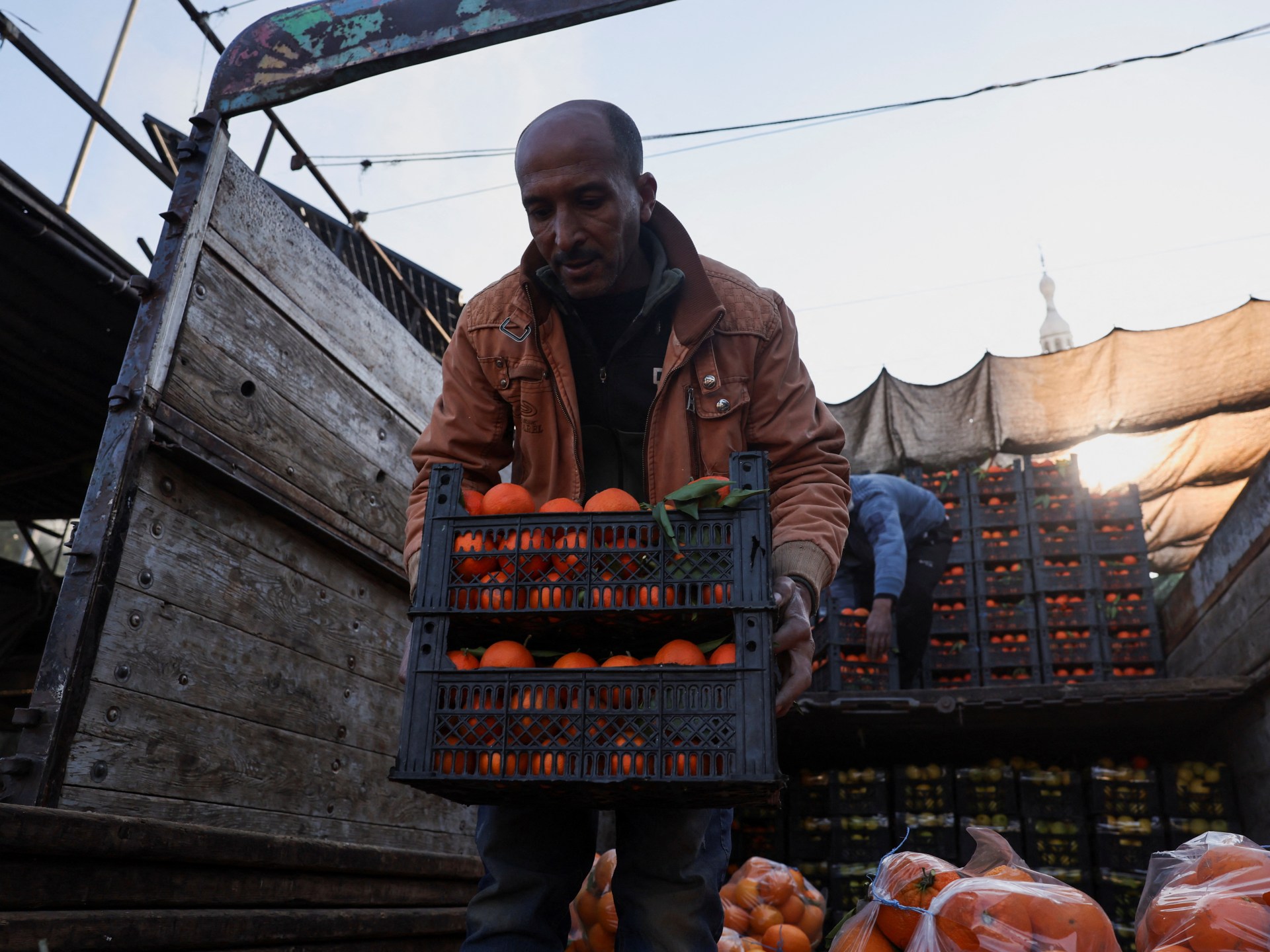
Ottawa to begin easing unwinding sanctions, as it names its ambassador to Lebanon to serve in a parallel role in Syria.
The Canadian government has announced plans to ease sanctions on Syria as the interim government in Damascus seeks international support.
Canadian Foreign Minister Melanie Joly on Wednesday said Ottawa would provide 84 million Canadian dollars ($59m) in new funding for humanitarian assistance. It would also allow funds to be sent through certain banks, such as the Central Bank of Syria, she said.
Meanwhile, Canada’s ambassador to Lebanon – Stefanie McCollum – has been nominated to serve in a parallel role as the non-resident ambassador to Syria.
The Canadian government issued a statement announcing its “commitment to deliver much-needed humanitarian assistance to the Syrian people and to support a transition to an inclusive and peaceful future”.
It added that “these sanctions had been used as a tool against the Assad regime and easing them will help to enable the stable and sustainable delivery of aid, support local redevelopment efforts, and contribute to a swift recovery for Syria”.
Many Western nations, including Canada, placed a range of sanctions on Syria under President Bashar al-Assad, who was toppled late last year by rebel forces led by the Hayat Tahrir al-Sham (HTS).
“Canada is also taking steps to ease existing sanctions for a period of 6 months, to support democratisation, stabilisation, and the delivery of aid to and within Syria during this period of transition,” the Canadian government said in its statement.
While the Syrian interim government has promised to protect its religious and ethnic minorities, security forces have reportedly killed hundreds of Alawite civilians in recent days.
According to the United Kingdom-based Syrian Observatory for Human Rights, more than 1,500 people have been killed in outbreaks of violence in Syria this month, including at least 1,068 civilians.
“We call on all parties to prioritise the work toward de-escalation and national reconciliation and prevent the country from descending into fragmentation and violence,” said Joly.
Elsewhere, Canada’s special envoy for Syria, Omar Alghabra, said: “Canada can … help prevent Syria from falling into chaos and instability.”
Middle East
Iran says progress in nuclear talks with US, confirms third round next week | News
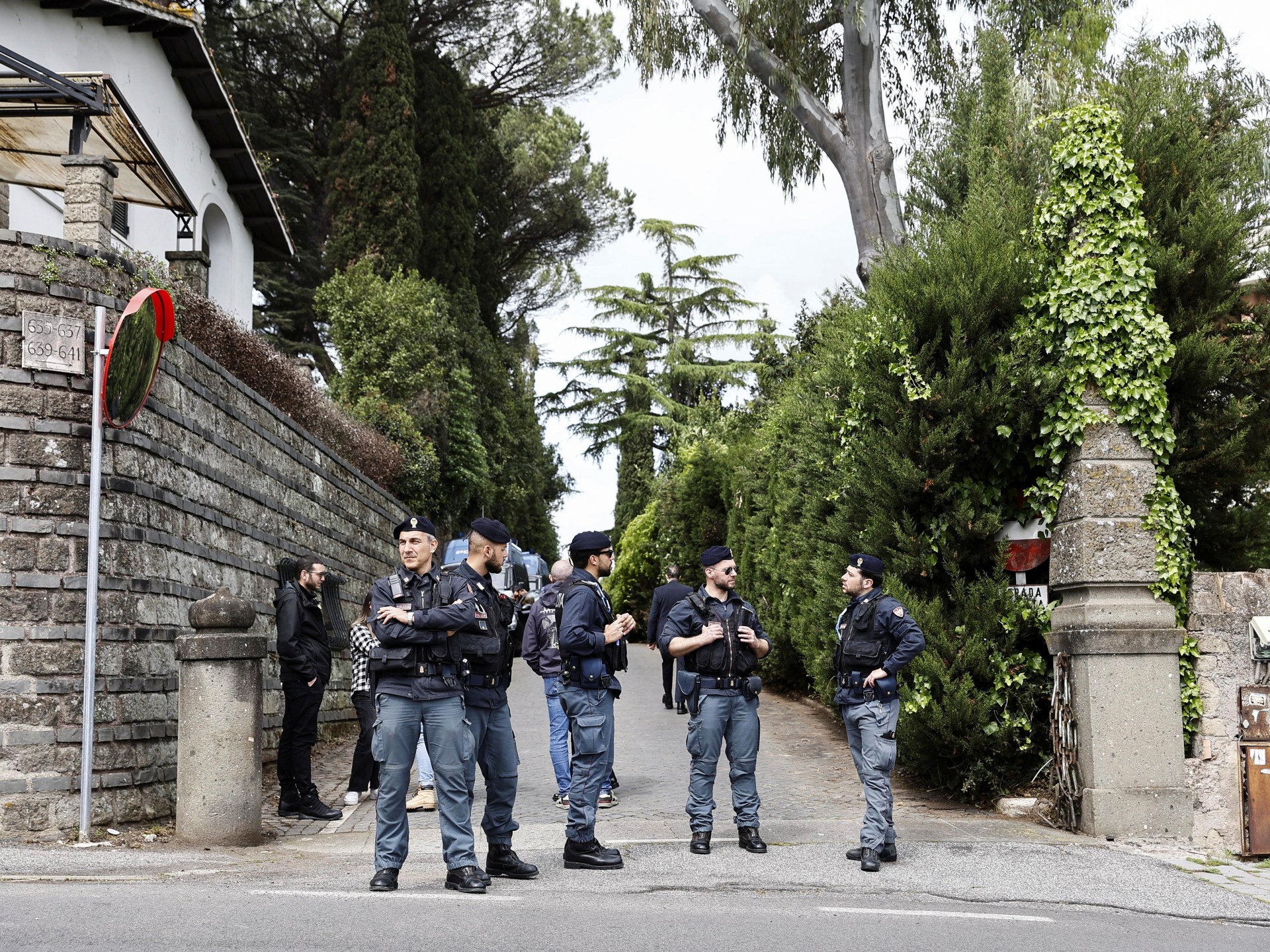
After technical talks, senior negotiators expected to reunite on April 26, according to Iran’s foreign ministry.
Iran and the United States have completed a second round of indirect nuclear negotiations, which Iran’s foreign minister has described as “constructive” and moving forward with further meetings planned in the coming week.
Abbas Araghchi and US Middle East envoy Steve Witkoff held four hours of indirect talks at Oman’s embassy in the Italian capital, Rome, on Saturday, according to Araghchi.
“We succeeded in reaching a better understanding on certain principles and goals,” the diplomat was quoted by the semiofficial Tasnim news agency as saying. “The negotiations were conducted in a constructive atmosphere and are progressing.”
There has been no readout yet of the meeting from the US side.
The delegations – led by Araghchi and Witkoff, a billionaire real estate executive whom US President Donald Trump has dispatched on numerous foreign policy missions – stayed in separate rooms in the embassy as Omani Foreign Minister Badr al-Busaidi shuttled messages between them, according to Iranian officials.
Iran’s Ministry of Foreign Affairs said the parties will hold more indirect, technical-level talks in the coming days, followed by another meeting with senior officials on April 26.
There were useful indirect talks today between Iran and the United States conducted by Oman Foreign Minister in a constructive atmosphere.
The two sides agreed to continue the indirect talks in few days at technical level to be followed by another round at their own level on…
— Esmaeil Baqaei (@IRIMFA_SPOX) April 19, 2025
“I hope that after next week’s technical sessions, we’ll be in a better position,” Araghchi said, according to Tasnim. “There’s no reason for excessive optimism or pessimism.”
‘Negotiations to pick up’
Al Jazeera’s James Bays, reporting near the Omani diplomatic compound in Rome, said the Iranian response was “very positive” for a delegation that “had seemed pretty negative going into the talks”.
Next week’s planned talks mean “the pace of negotiations is going to be picked up”, Bays said.
The latest meeting comes a week after Iran and the US came together in Muscat for their first high-level discussions since Trump in 2018 unilaterally abandoned a landmark nuclear accord signed and brokered by world powers in 2015.
The Iranians “are looking for a kind of consistency when it comes to the current talks”, Al Jazeera’s Tohid Asadi reported from Tehran.
Will US accept civilian nuclear programme?
Western governments, including the US, have long accused Iran of seeking to develop nuclear weapons – an allegation Tehran has denied, insisting its nuclear programme is solely for peaceful civilian use. On Wednesday, the head of the International Atomic Energy Agency, Rafael Grossi, said Iran was “not far” from possessing a nuclear weapon.
Grossi was also in Rome on Saturday meeting Italian Foreign Minister Antonio Tajani. Grossi’s nuclear watchdog would likely be central in verifying compliance by Iran should a deal be reached, as it did with the 2015 accord.
The US and Iran have had no diplomatic relations since shortly after Iran’s 1979 Islamic Revolution. After returning to office in January, Trump revived his “maximum pressure” sanctions campaign against Tehran, but in March, he sent a letter to Iranian Supreme Leader Ali Khamenei calling for renewed negotiations – while warning of military consequences if diplomacy fails.
“I’m not in a rush” to use force, Trump said on Thursday. “I think Iran wants to talk.”
On Friday, Araghchi said the US showed “a degree of seriousness” during the first round of talks but questioned Washington’s “intentions and motivations”.
Bays said the heart of the dispute remains whether Iran may maintain a civilian nuclear programme – or whether, as hardliners in Washington insist, it must dismantle its nuclear programme entirely.
“All they’ve been talking about last week in Muscat and here in Rome is a framework for the discussions and what they want to achieve,” Bays said. “They have not been discussing the nuclear detail, … and the devil is in the detail on these things.”
Middle East
Over 170 arrested for attacks on Pakistan KFC outlets in Gaza war protests | Israel-Palestine conflict News
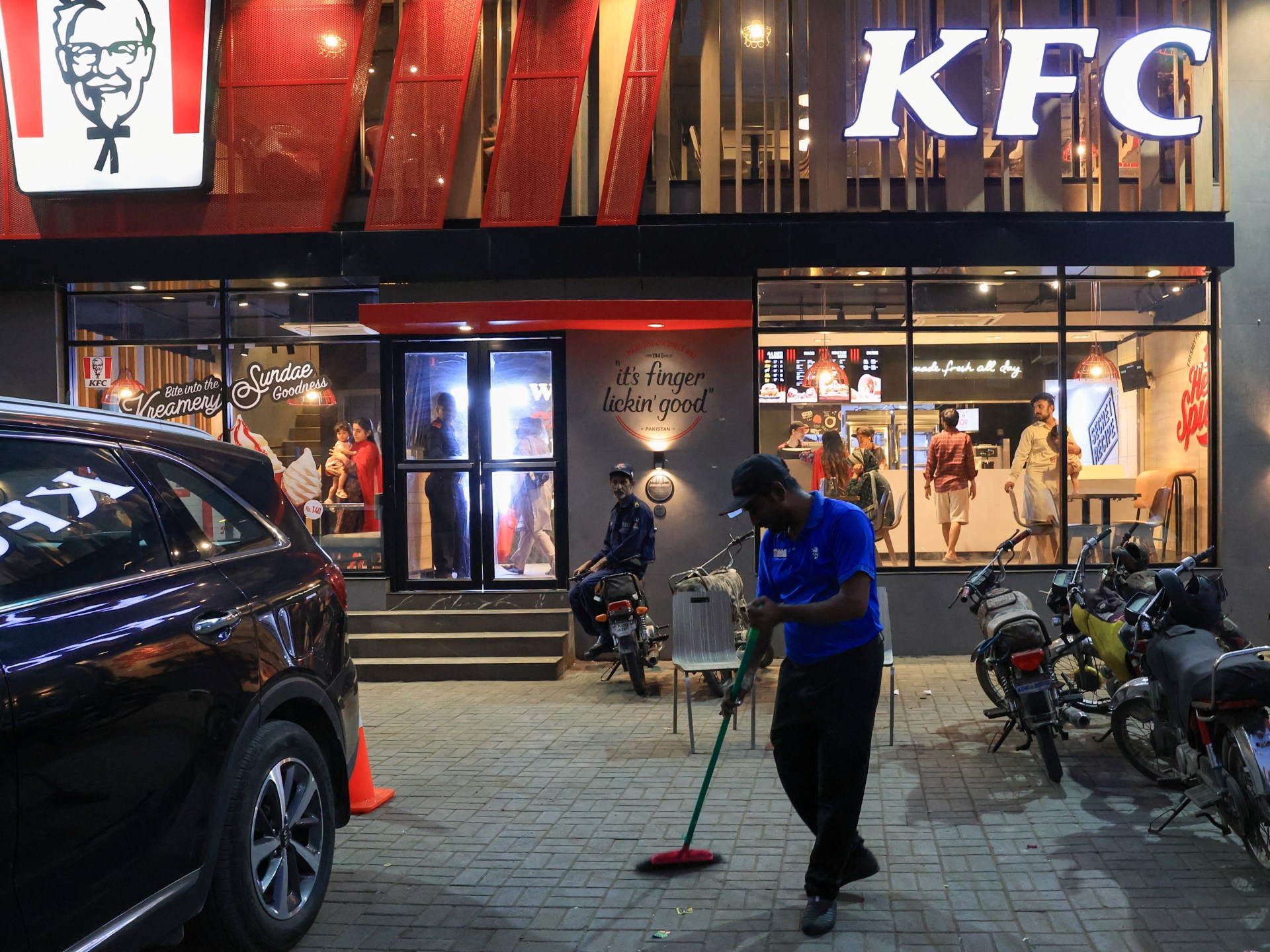
Western brands have been hit by boycotts and other forms of protests in Muslim-majority countries due to the Gaza war.
Police have arrested close to 200 people in Pakistan in recent weeks after more than 10 group attacks on outlets of the United States-based fast-food chain KFC, sparked by anti-US sentiment, unconditional US backing for Washington’s close ally Israel and opposition to Israel’s war in Gaza, officials say.
The fast-food chain has become a target of protest and boycott calls by Islamist parties since the start of the war in Gaza as they link the brand to US support for Israel.
At least 178 people have been arrested, the officials said this week.
Police in major cities in Pakistan – including the southern port city of Karachi, the eastern city of Lahore and the capital, Islamabad – confirmed at least 11 incidents in which KFC chicken restaurants were attacked by protesters armed with sticks and vandalised.
A police official, who spoke on condition of anonymity, said one KFC employee was shot and killed this week in a store on the outskirts of Lahore by unknown gunmen. The official added there was no protest at the time and police were investigating whether the killing was politically motivated or for some other reason.
In Lahore, police said they were ramping up security at 27 KFC outlets after two attacks took place and five were prevented.
“We are investigating the role of different individuals and groups in these attacks,” Faisal Kamran, a senior Lahore police officer told the Reuters news agency, adding that 11 people, including a member of the Islamist party Tehreek-e-Labbaik Pakistan (TLP), have been arrested in the city. He added the protests were not officially organised by the TLP.
TLP spokesman Rehan Mohsin Khan said the group “has urged Muslims to boycott Israeli products, but it has not given any call for protest outside KFC”.
“If any other person claiming to be a TLP leader or activist has indulged in such activity, it should be taken as his personal act which has nothing to do with the party’s policy,” Khan said.
Western brands have been hit by boycotts and other forms of protests in Pakistan, other Muslim-majority countries and several Western nations over Israel’s military offensive in the Gaza Strip.
In February last year, McDonald’s cited boycott campaigns in the Middle East, Indonesia and Malaysia for sales growing just 0.7 percent during the fourth quarter of 2023, compared with 16.5 percent growth in the same quarter the previous year.
Unilever – which produces Dove soap, Ben & Jerry’s ice cream and Knorr stock cubes – also said sales in Indonesia in the same quarter had experienced a double-digit decline as a result of “geopolitically focused, consumer-facing campaigns”.
A KFC restaurant in the Pakistan-administered region of Kashmir was also set on fire in March last year as protesters chanted “Free Palestine.”
More than 51,900 people have been killed in Gaza during Israel’s war, which began 18 months ago.
At least 1,139 people were killed in Israel during the Hamas-led attacks of October 7, 2023, and more than 200 were taken captive.
KFC and its parent company Yum Brands have not yet responded to news of the arrests in Pakistan.
Middle East
Tunisian court hands opposition figures lengthy jail terms | Human Rights News
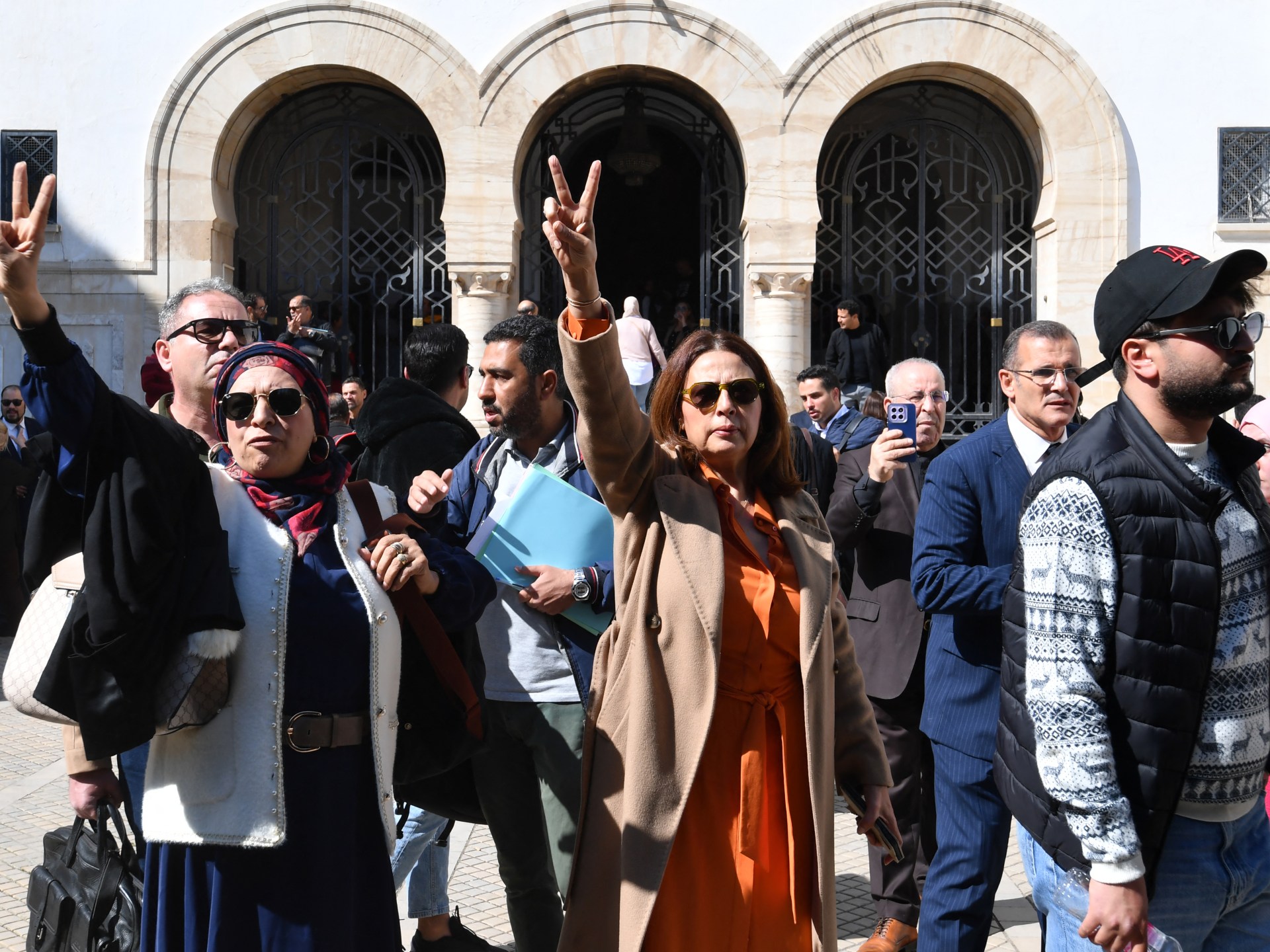
Dozens of defendants found guilty of “conspiracy against state security” and given sentences of 13 to 66 years.
Dozens of opposition figures in Tunisia have been handed lengthy prison terms on national security charges, according to state media.
A number of the North African country’s most senior opposition politicians were among 40 people sentenced on Saturday, including a former justice minister and diplomats. Critics insist the charges are trumped up and say they are symbolic of President Kais Saied’s authoritarian rule.
The TAP state news agency, quoting an unnamed judicial official, reported that the sentences ranged from 13 to 66 years.
An official from the anti-terrorism prosecutor’s office was quoted by Jawhara FM as saying the defendants were found guilty of “conspiracy against state security”, and “belonging to a terrorist group”, including liaising with “foreign powers” to undermine Saied’s rule.
The precise details of the trial remain cloudy, with the exact number of those on trial and the specific charges they face unclear.
It was not immediately clear either on Saturday whether all of the estimated 40 defendants in the case, which has become known as the “conspiracy case” and been running for two years or so, were found guilty and given prison terms.
About 20, many of whom have fled Tunisia, were sentenced in absentia, including the French intellectual, Bernard-Henri Levy, who is accused of being a conduit between defendants and foreign parties.
“President Saied has weaponised Tunisia’s judicial system to go after political opponents and dissidents, throwing people in arbitrary detention on flimsy evidence and pursuing them with abusive prosecutions,” Bassam Khawaja, deputy Middle East and North Africa director at Human Rights Watch, told Al Jazeera earlier this month.
On Friday evening, defence lawyers denounced the trial after the judge finished reading the accusations and began deliberation without hearing from either the prosecution or the defence.
“In my entire life, I have never witnessed a trial like this. It’s a farce, the rulings are ready, and what is happening is scandalous and shameful,” said lawyer Ahmed Souab.
Authorities have accused the defendants, who also include the former head of intelligence, Kamel Guizani, as well as media figures, of attempting to destabilise the country and overthrow Saied.
A number of the defendants – including Issam Chebbi, Ghazi Chaouachi and Jawhar Ben Mubarak – have been in custody since being detained in 2023. Chebbi is a member of the opposition National Salvation Front coalition.
“The authorities want to criminalise the opposition,” Chebbi said on Friday.
Saied rejects accusations that he is a dictator. He said in 2023 that the accused politicians were “traitors and terrorists” and that any judge who would acquit them would be an accomplice.
Saied consolidated his power in 2021 by dissolving the parliament and sacking the then-prime minister.
The opposition leaders involved in the case accused him of staging a “coup”.
They say the charges against them were fabricated to stifle the opposition and establish a one-man, repressive rule.
Some of Tunisia’s most prominent opposition leaders are already in prison.
Rached Ghannouchi, the head of Ennahdha, was arrested in April 2023 and sentenced to one year in prison on charges of incitement.
Earlier this year, he was handed a further 22-year sentence on charges that included plotting against state security. He was also sentenced to three years for accusations that his party received foreign contributions.
-

 Education1 day ago
Education1 day agoHarvard’s battle with the Trump administration is creating a thorny financial situation
-

 Sports1 day ago
Sports1 day agoAaron Rodgers ‘not holding anybody hostage’ as he decides his future, retirement a possibility
-
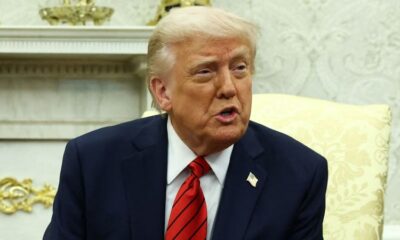
 Europe1 day ago
Europe1 day agoLive updates: Trump news, Ukraine peace talks, US immigration, tariffs and university funding
-

 Sports2 days ago
Sports2 days agoNY Rangers’ Panarin, MSG reportedly made settlement payments after employee made sexual assault allegations
-

 Conflict Zones24 hours ago
Conflict Zones24 hours agoTrump says US may ‘pass’ on helping end war if Russia, Ukraine resist deal | Russia-Ukraine war News
-

 Lifestyle1 day ago
Lifestyle1 day agoSweets from the sky! A helicopter marshmallow drop thrills kids in suburban Detroit
-

 Lifestyle2 days ago
Lifestyle2 days agoLook inside Maine’s ‘Sistine Chapel’ with 70-year-old frescoes
-
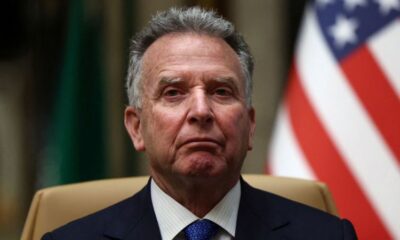
 Europe1 day ago
Europe1 day agoTrump’s ‘lone ranger’: How Steve Witkoff became the defacto point man on America’s foreign policy challenges




